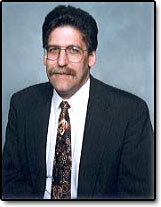Dr. Michael Brown
 Dr. Michael L. Brown is founder and president of ICN Ministries, devoted to taking the message of repentance and revival to Israel, the Church, and the Nations. He has preached throughout the United States and in numerous foreign countries, emphasizing radical discipleship, holy living, and the visitation of the Spirit. His books, articles, and messages have been translated into more than a dozen languages. In 1996, he became part of the ministry of the Brownsville Revival, holding weekly sessions for leaders and heading up the revival’s intensive two-year School of Ministry. Dr. Brown is now President of the FIRE School of Ministry located in Charlotte, NC.
Dr. Michael L. Brown is founder and president of ICN Ministries, devoted to taking the message of repentance and revival to Israel, the Church, and the Nations. He has preached throughout the United States and in numerous foreign countries, emphasizing radical discipleship, holy living, and the visitation of the Spirit. His books, articles, and messages have been translated into more than a dozen languages. In 1996, he became part of the ministry of the Brownsville Revival, holding weekly sessions for leaders and heading up the revival’s intensive two-year School of Ministry. Dr. Brown is now President of the FIRE School of Ministry located in Charlotte, NC.
As a Jewish believer in Jesus, Dr. Brown is active in Jewish evangelism
and has debated rabbis on radio, TV, and college campuses. He is also a
published Old Testament and Semitic scholar, holding a Ph.D in Near
Eastern Languages and Literatures from New York University. In 1997, he
was appointed Visiting Professor of Jewish Apologetics at Fuller
Theological Seminary School of World Mission and has been affiliated with
Regent University Divinity School as an Adjunct Professor of Old Testament
and Jewish Studies.
If Jesus is the Jewish Messiah, why don’t more Jews believe in Him?
Judaism today is divided into various groups: Reformed, Reconstructionist, Conservative, Orthodox, and Hasidic. Each group accepts certain truths from the Talmud and certain truths from the Bible. The distinctive quality of Messianic Judaism is that it is biblically Jewish, i.e., it holds to the absolute authority of the Scriptures. This is important because to all other Jewish groups, the Bible is not the final authority. Therefore, the Messiahship of Jesus is not an issue that is approached with an open mind, since the interpretations of today’s rabbis depend totally on the opinions and traditions of their forefathers who rejected Jesus.
Those Jews who have studied the question of the Messianic claims of Jesus with a truly open mind have come to surprising conclusions, and many rabbis and Jewish leaders have indeed accepted Jesus as their Messiah. Some Jewish people have rejected Jesus because they fail to understand His dual role. They have looked for a king, a political leader who would free them from their oppressors and provide peace and prosperity. Jesus will accomplish this in the future, when He returns to re-establish the throne of David.
The Hebrew Scriptures indicate that the Jewish people would not recognize their Messiah when He first appeared (Isaiah 53:1-3) to die as an atonement for sin.